
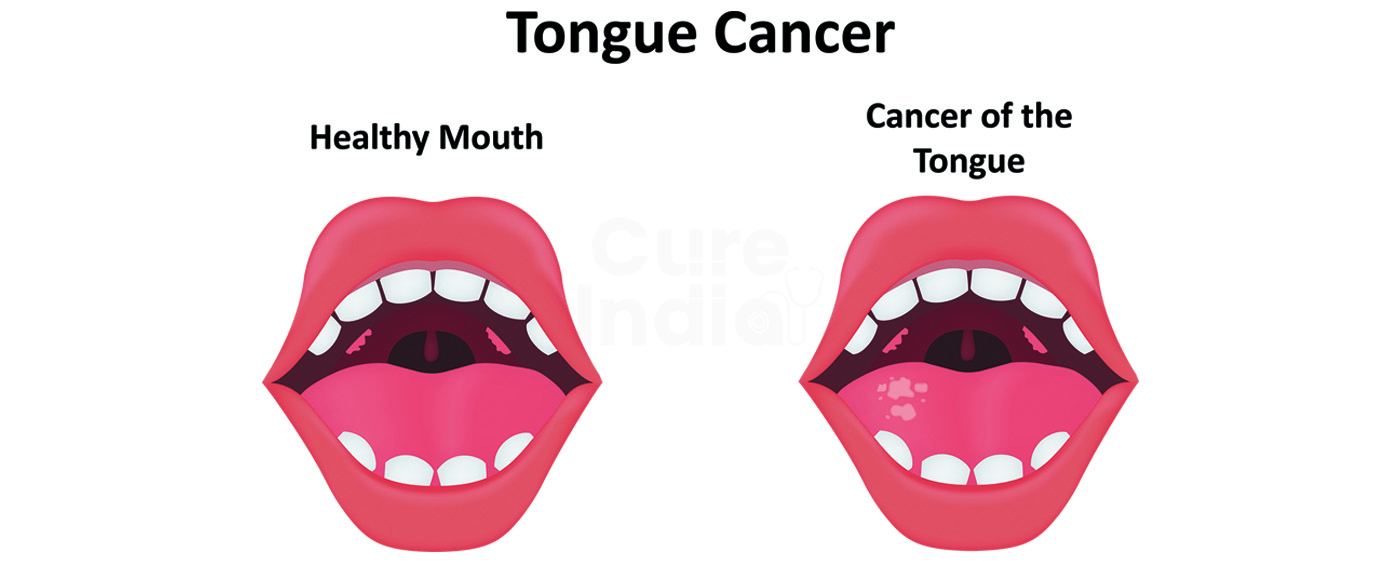
Oral cancer is one of the many forms of cancer that occur in the body. Oral cancer develops in the parts that make up the mouth like lips, gums, tongue, the inner lining of cheeks, roof and floor of the mouth, salivary glands as well as tonsils. Oral cancer is most likely to be diagnosed in people who have crossed the age of 40. Men carry the risk of having oral cancer twice to that of women.
Modern healthcare in Africa continues to become more advanced and accessible; however, existing barriers persist. Complex diseases, including oral cancer, prove challenging for people to receive appropriate treatment at affordable costs. Yearly, a number of African patients travel outside their home country to access more effective and affordable healthcare options. India is one of the best and most-visited countries by Africans for cancer treatment. The country receives numerous patients seeking oral cancer treatment in India. Through its modern facilities, advanced medical diagnostics, and highly skilled oral cancer surgeons, Indian healthcare has achieved global recognition. The medical centres serve patients from Kenya, Tanzania, Congo, Ghana, Rwanda, and other nations because of superior care while remaining cost-effective.
Patients now receive advanced oral cancer care through Indian medical centres at affordable pricing, which provide access to treatment unavailable in their home countries. This makes India one of the best places for getting oral cancer treatment.
Many people do not have a clear conception of what is oral cancer. Basically, it starts as a malignant growth affecting the mouth. The cancer form develops in different areas, including the lips, gums, tongue, rooftop of the mouth, floor below the teeth, and the inside surfaces of the cheeks. The specialists also call this disease oral cavity cancer.
The usual indicator of oral cancer is non-healing white or red bumps anywhere in the mouth. When not treated, such cancers can spread throughout the mouth alongside the neck. Early detection, together with appropriate medical care, can be helpful for oral cancer treatment in India. The condition targets adults aged 40 and above, yet health specialists notice a rising number of younger patients also. Timely diagnosis and proper clinical care are needed for the treatment of the cancer
Worldwide, oral cancer is a serious medical issue that affects many patients. The development of the cancer starts when normal mouth cells transform into uncontrolled cancerous cells. Also, there are several oral cancer causes:
The early symptoms of oral cancer often mimic regular mouth conditions while presenting themselves in various ways. Successful treatment depends on early detection of oral cancer, so people should learn to recognise warning signs.
When these symptoms persist and show no signs of improvement, you need to visit a doctor for oral cancer treatment in India. The sooner an oral cancer is discovered, the better the options for treating it will be.
Basically, 4 oral cancer stages can be primarily seen in a person. The following stages are:
Doctors rely on the TNM system to identify the stage of oral cancer. Doctors use the TNM system to evaluate cancer stages by measuring tumour size through T. They determine lymph node involvement through N and assess metastasis through M. Doctors use this information to determine the most effective oral cancer treatment in India.
Doctors use multiple diagnostic procedures to identify oral cancer. Doctors conduct physical checks to identify oral cancer after patients display potential signs of cancer, because early diagnosis is a must for good-quality oral cancer treatment in India. To confirm the presence of oral cancer, the doctor may carry out the following tests:
There are several kinds of oral cancer treatment that are present which are chosen, alone or in combination. They depend on the type, stage of breast cancer, age, personal preferences and sensitivity towards certain hormones. Here are the most common forms of oral cancer treatment that are either in the form of oral cancer surgery or radiotherapy or chemotherapy.
Through chemotherapy, doctors apply extremely potent drugs that eliminate cancer cells. When used together with surgery and radiation therapy, the chemotherapy oral cancer treatment in India delivers enhanced outcomes.
Through the application of high-energy beams such as X-rays, radiation therapy attacks cancer cells for destruction. This medical procedure for oral cancer treatment in India seeks to treat growths that get excluded from surgical intervention.
Unlike traditional chemotherapy, these drugs are used to selectively treat the affected area, thereby causing lesser damage to other parts of the system. Advanced medications can now directly target specific functions in cancer cells.
In the Oral cancer surgery, the doctor takes the tumor out of your mouth when the surgeon removes the cancer cells surgically through medical instruments.
The most successful treatment combinations for cancer patients frequently require surgical procedures together with chemotherapy and radiation therapy. Treatment decisions rest on the patient's condition, tumour advancement, and the surgeon’s expert judgement.
The cost of oral cancer treatment in India varies based on factors including the stage of the disease, treatment modality, location, and patient-specific needs. The average cost of oral cancer treatment is around $4,000 with CureIndia. This cost is very affordable compared to the treatment costs in countries like the US and the UK, with the same level of quality. Here is a breakdown of the oral cancer treatment costs and the factors that influence them.
| Treatment Name | Cost in India | Stay in India |
|---|---|---|
| Oral Cancer Treatment in India | $4,000 | 10 Days |
When it comes to treating oral cancer, experience, technology and technique can make all the difference. In India, patients can access leading oncologists and surgical specialists at state-of-the-art oral cancer centres, which offer everything from early detection and surgery to reconstruction, radiotherapy, and follow-up support at affordable rates. Let's listen to some of our best doctors for oral cancer treatment in India:
With over 27 years of experience, Dr. Jalaj Baxi is a highly experienced surgical oncologist in India. He is counted among India’s top oral cancer specialists and is regarded for his deep surgical expertise and success rates. With his long history in cancer surgery, he is often recommended for complex oral-cancer cases requiring experienced hands and extensive patient-centric care.
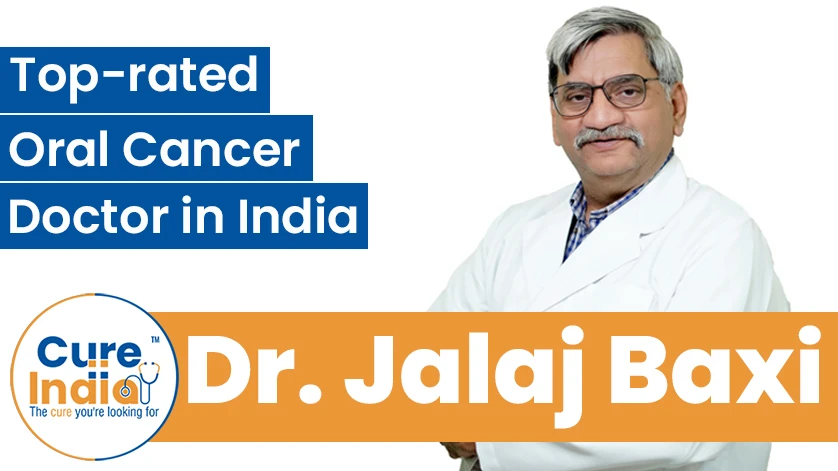
Dr. Surender Kumar Dabas is a leading surgical oncologist in India for treatments including robotic head-and-neck and oral cancer surgery in India. He currently serves as the chairman of comprehensive oncological care at Manipal Hospital and has till date performed more than 4,000 successful robotic procedures.
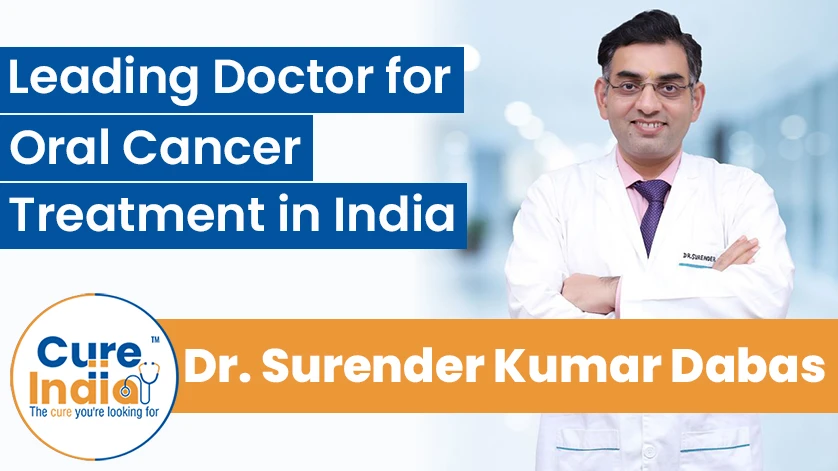
Dr. Mukesh Patekar is an expert oral cancer specialist in India with extensive experience in treating various cancers, such as oral and thyroid cancer using non-surgical therapies, including chemotherapy, systemic therapy and comprehensive oncology care. With over 16 years of experience and a background in medical oncology, Dr. Patekar brings expertise in performing adjuvant therapy, palliative care, and comprehensive cancer management for oral cancer treatment.
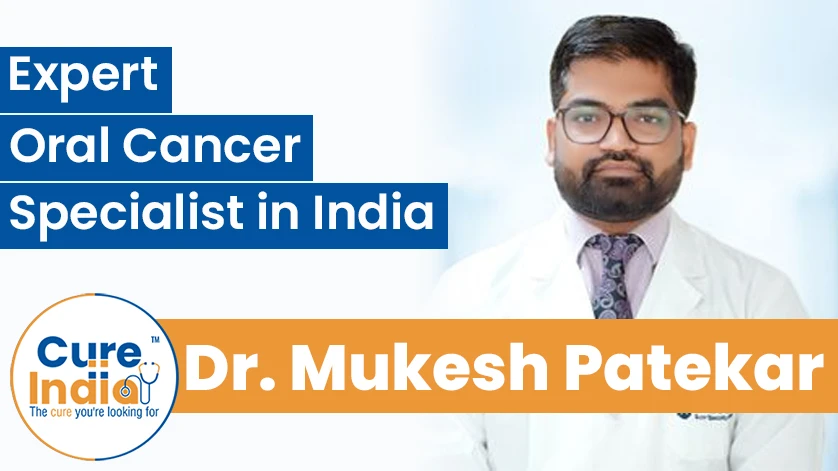
Dr. Vedant Kabra is Principal Director of surgical oncology at Fortis Gurgaon with over 25 years of experience and more than 12,000 complex oncologic surgeries. He specialises in treating head and neck cancer, including oral cancer, and offers advanced, minimally invasive, and robotic surgeries for restoring quality of life, rehabilitation, and prevention.
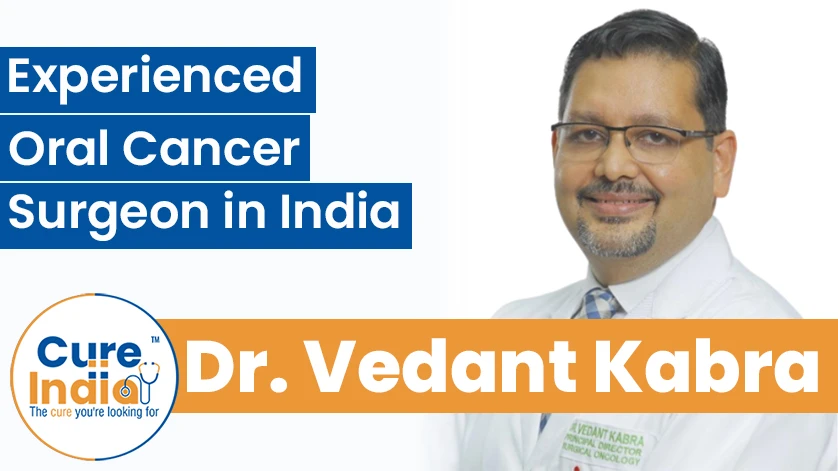
Oral cancer patients need extended periods to achieve complete physical recovery after their treatments.
